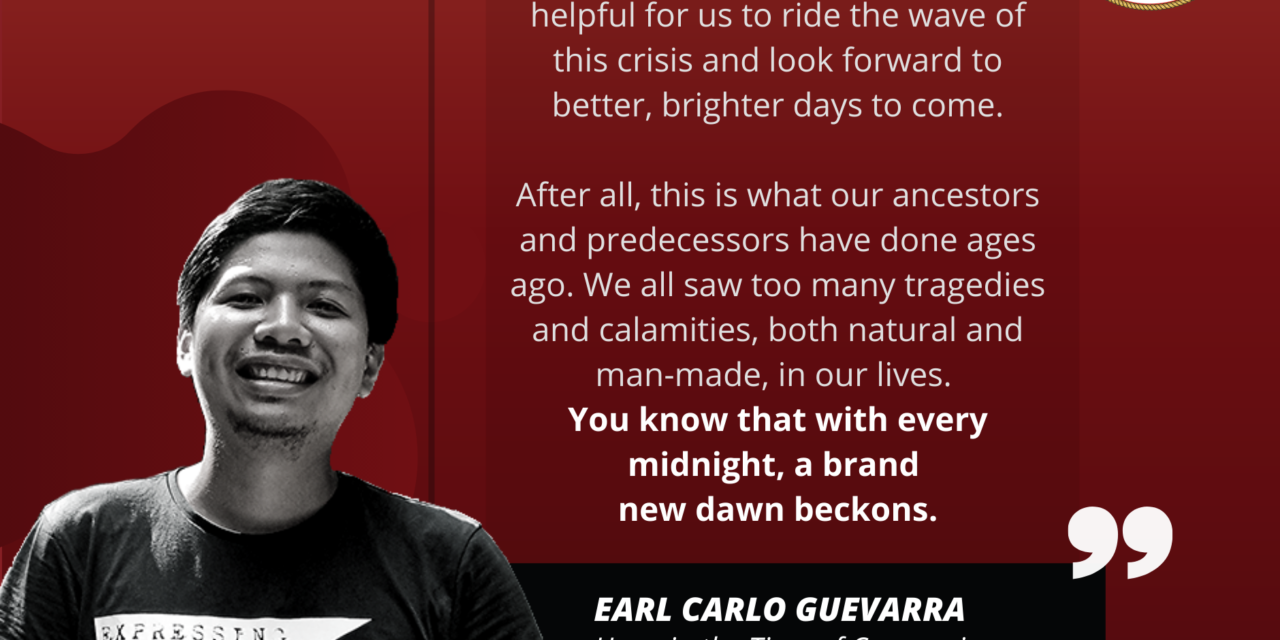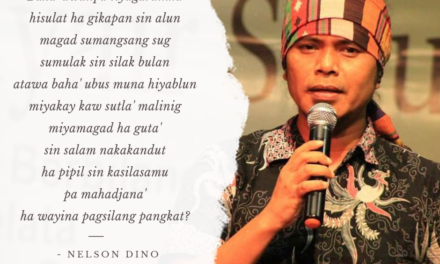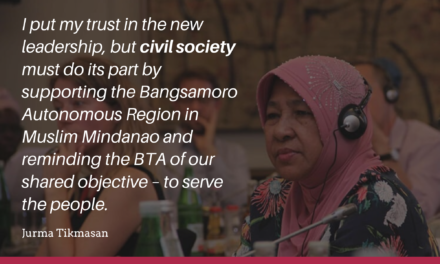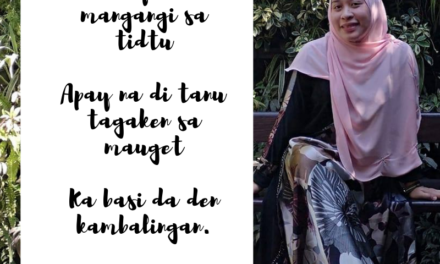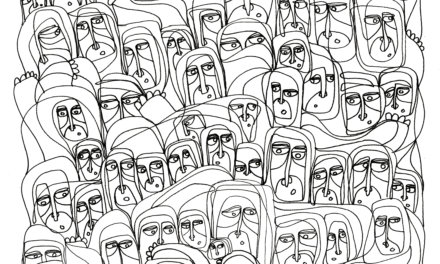By: Earl Carlo Guevarra
You wake up one morning, and you see that you can’t go outside of your home, despite the crisp, clear skies, the shining, sunny weather, and the refreshing, breezy winds of your place.
Then, you open Facebook and realize that your community has been placed under ‘enhanced community quarantine’ by the local government.
The names and practices may vary from one place to another, but everyone knows that it is a lockdown. No meetings, no weddings, no gatherings – there’s nothing at all. Ironically, even funerals and Jumaah prayers aren’t allowed now. You can’t help but let out a light, bitter chuckle at that.
You already prepared for it by buying enough food for your family. Still, your prayers and thoughts go to the paycheck workers, the frontline personnel, and the homeless out there, who can’t afford to stay at home, or don’t have a place to stay at all.
Everyone needs to take care of each other. There are many things that we could do while we are under enhanced community quarantine.
First, it is a known fact that social isolation is hard, especially in communities where socialization and interaction are paramount. Everyone knows that here in the Bangsamoro, we are all a diverse collection of tribes, creeds, and communities who interact and converse with each other every single day. However, in the absence of a viable vaccine or drug, it is the only proven way so far to ‘flatten the curve’ of the coronavirus pandemic. It is the only way to keep everyone safe.
Many countries have done it and added measures specific to their national circumstances. As a result, their lives have regained a sense of normalcy; in other words, they survived the pandemic.
Even the Prophet Muhammad, peace and blessings be upon him, has said the following regarding quarantine:
“If you hear of an outbreak of plague in a land, do not enter it; but if the plague outbreaks out in a place while you are in it, do not leave that place.”
Do you know what else the beloved Prophet has pointed out in these times? “Those with contagious diseases should be kept away from those who are healthy.”
In other words, social distancing has been recommended as a method of containing diseases, long before modern medicine has been established.
Second, it’s high time to responsible for the things you do online. Follow the official accounts of your government and your leaders. Be proactive in identifying fake news and stopping it from spreading. This is one of the best ways to show social responsibility in this time of crisis.
Unnecessary gossip serves the interest of no one, and panic caused by disinformation is just as deadly as the virus itself.
Third, if one thinks about it, this time spent in ‘isolation’ is a great time to introspect and go back to ourselves. Spend time with one’s family; read stories with your children, cook food with your wife, and read books that increase one’s faith, knowledge, and mental fortitude.
Fourth, thank the doctors, nurses, medical and support staff, and everyone who’s out there fighting to contain the virus from spreading further. It is a known fact that a little bit of appreciation goes a long way; it serves as the fuel and motivation for everyone to press on.
Fifth, we should remember that it is important not to lose hope in these hard times, we should also remember to look help our brothers and sisters who are less fortunate. After all, it may be hard for them to get what they need during the duration of the lockdown.
You can start by donating to organizations that you trust. Say hi to your neighbors every once in a while and ask them if they need something. Support all social initiatives that would support the marginalized and disenfranchised among us – especially those that aim to continue their programs beyond the quarantine period.
After all, showing empathy as well as taking care of the elderly and vulnerable in our society goes a long way towards intensifying our individual and group resilience against the virus and create a sense of social responsibility as well.
Once again, the Prophet tells us in an authentic narration: “Every good deed is charity. Verily, it is a good deed to meet your brother with a cheerful face, and to pour what is left from your bucket into the vessel of your brother.”
Finally, reflect on your life (muhasaba) and seek guidance in your respective faith. Self-introspection allows us to be better persons by taking stock of the good and the bad from our past; this, in turn, prepares us to be better prepared for the future choices that we make in our lives.
Yes, we all live in difficult times. But a healthy balance of faith, hope, and best practices should be helpful for us to ride the wave of this crisis and look forward to better, brighter days to come.
After all, this is what our ancestors and predecessors have done ages ago. We all saw too many tragedies and calamities, both natural and man-made, in our lives.
You know that with every midnight, a brand new dawn beckons.
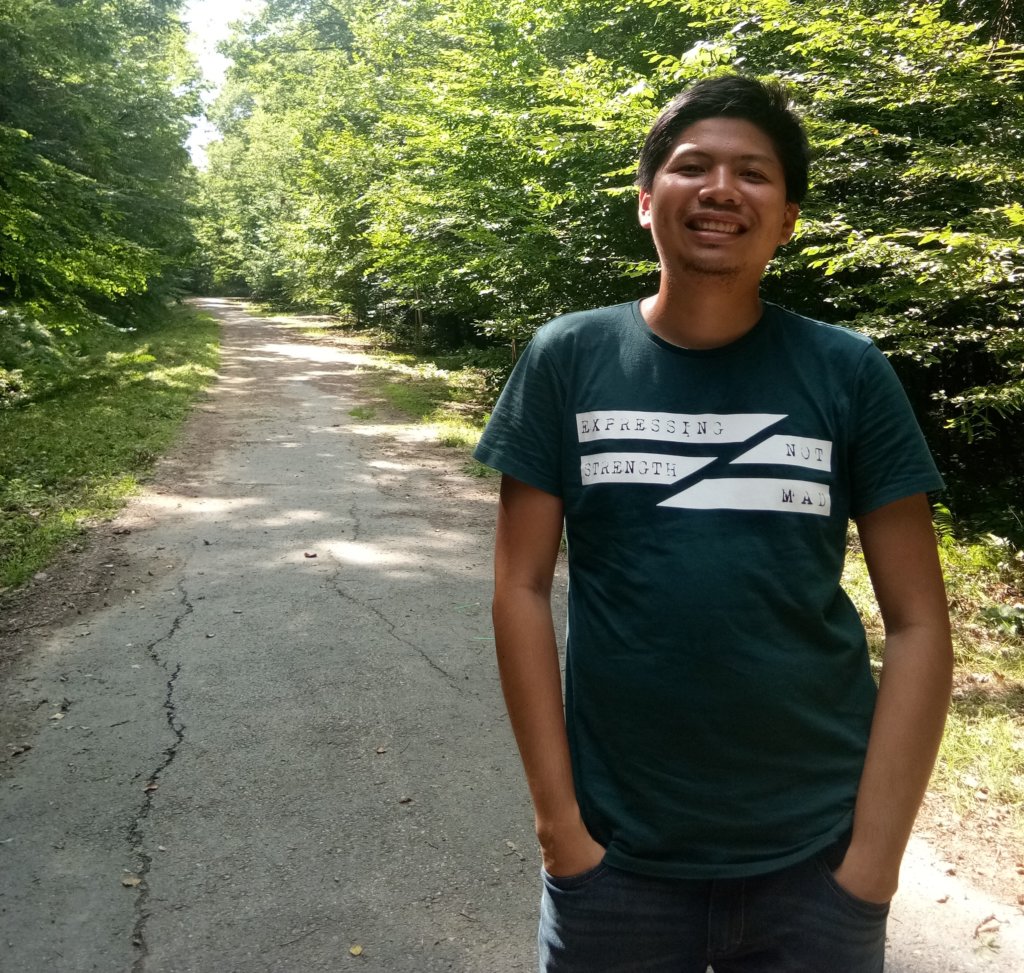
Earl Carlo Guevarra, 26 and a proud Zamboangueño, is a teacher of English at an international school in San Juan City in the Philippines. When he’s not teaching or wandering, he likes to drink fruit shakes and dabble in poetry.

